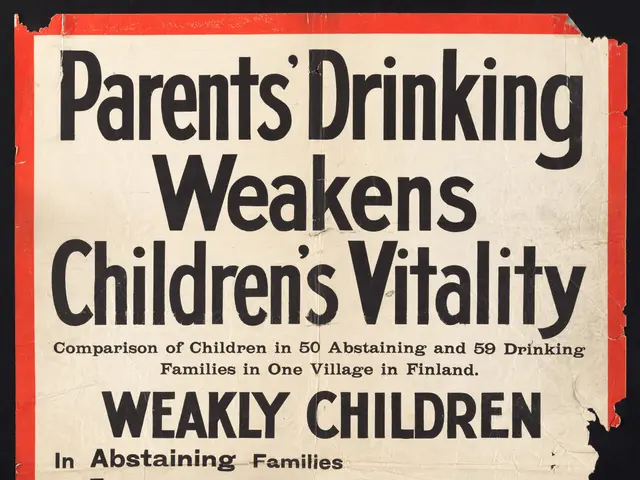Cold Spells: Origins, Remedies, and Signs for Medical Consultation
Shivering, a common bodily response to cold temperatures, can also be a sign of various underlying medical conditions. While it is commonly associated with feeling chilly, shivering can result from infection-driven fevers, blood sugar imbalances, anxiety, hormonal dysfunctions, neurological conditions, nerve damage from autoimmune diseases, and even extreme heat stress.
One such neurological condition is essential tremor, a neurological disorder that causes involuntary trembling, shaking, or shivering. Additionally, shivering can be a symptom of psychogenic movement disorders, which are characterised by involuntary movements due to stress or mental health factors.
Fever and infections, such as tuberculosis, HIV/AIDS, pneumonia, malaria, and others, often trigger shivering and chills as the body attempts to raise its core temperature to fight the infection. Low blood sugar (hypoglycemia) can cause a person to shiver or feel shaky, especially in those with diabetes or those who skip meals.
Strong emotions like fear, excitement, or stress can also cause a person to shake or shiver due to a surge of adrenaline in the body. On the other hand, thyroid disorders, such as hyperthyroidism, can affect body temperature regulation, leading to symptoms like heat intolerance, excessive sweating, and sometimes shivering or shaking.
Arthritis-related nerve issues, such as peripheral neuropathy or carpal tunnel syndrome, can indirectly cause hand shaking or tremors through nerve inflammation or compression. Sepsis, an overwhelming response of the body to infection, can also cause shivering as one of its symptoms.
Postanesthetic shivering can occur when a person regains consciousness after a general anesthetic, due to the body's temperature dropping during the surgical procedure and its difficulty regulating temperature after anesthetics.
Older adults and individuals with underlying health conditions may be more susceptible to the adverse effects of shivering, such as difficulty regulating body temperature and increased heart rate and breathing. Keeping warm in cold weather is essential for good health in these groups.
Treatment for shivering depends on its cause. In some cases, deep breathing, using extra blankets, and staying hydrated can help. In other cases, medical treatment may be necessary. For example, drinking plenty of fluids and taking nonsteroidal anti-inflammatory drugs (NSAIDs) or acetaminophen can help to reduce a fever. A neurologist usually diagnoses psychogenic movement disorders.
In conclusion, shivering is a complex bodily response that can indicate various underlying health issues. It is important to consider other symptoms and seek medical advice if shivering persists or is accompanied by other unusual symptoms.
- Essential tremor, a neurological disorder, can cause involuntary shaking or shivering.
- Psychogenic movement disorders, stemming from mental health factors, are characterized by involuntary movements and shaking.
- Fever and various infections, including tuberculosis, HIV/AIDS, pneumonia, and malaria, can cause shivering and chills.
- Low blood sugar (hypoglycemia) in individuals with diabetes or those who skip meals can result in shivering or feeling shaky.
- Strong emotions such as fear, excitement, or stress can cause a person to shake or shiver due to a surge of adrenaline.
- Thyroid disorders, like hyperthyroidism, affecting body temperature regulation, can cause symptoms like heat intolerance, excessive sweating, and shivering or shaking.
- Arthritis-related nerve issues, such as peripheral neuropathy or carpal tunnel syndrome, can indirectly cause hand shaking or tremors.
- Sepsis, an extreme response to infection, can cause shivering as one of its symptoms.
- Postanesthetic shivering might occur when a person regains consciousness after a general anesthetic, due to temperature drop during the surgical procedure.
- Older adults and individuals with underlying health conditions may experience difficulty regulating body temperature and increased heart rate and breathing due to shivering.
- A neurologist usually diagnoses psychogenic movement disorders, and in some cases, drinking fluids and taking NSAIDs or acetaminophen can help to reduce a fever.
- In terms of health-and-wellness and mental-health, it is crucial to consider other symptoms and seek medical advice if shivering persists or is accompanied by other unusual symptoms.
- Science and various therapies-and-treatments are continuously being developed for managing conditions like multiple sclerosis (MS), colitis, Crohn's disease, psoriatic arthritis, ulcerative colitis, epilepsy, COPD, obesity, hypoglycemia, and asthma.






